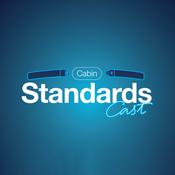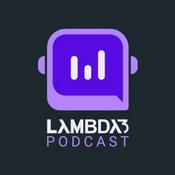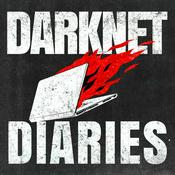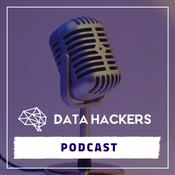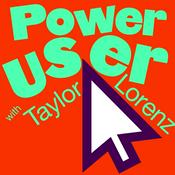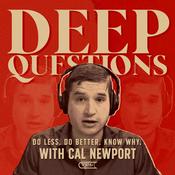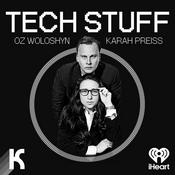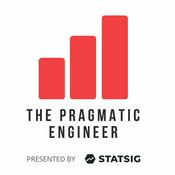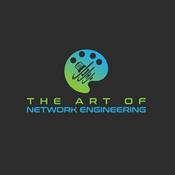29 episódios

029: Tuning Ruby on Rails App Performance with Jean Boussier
23/1/2025 | 1h 4min
In this episode, Jean Boussier and I dive deep into performance optimisation for Ruby on Rails applications. From diagnosing common bottlenecks and mastering advanced caching techniques to leveraging YJIT, jemalloc, and server concurrency models, we explore practical strategies for scaling apps efficiently. We also discuss key metrics for monitoring production performance, cost-effective observability, and modern Rails patterns to embrace or avoid. Perfect for developers looking to take their Rails performance game to the next level!Ruby and Rails Conference: wroclove.rb 11–13.04.2025 Wrocław, PolandTry Mailtrap for freeRails Guide: Tuning Performance for DeploymentNate Berkopec: The Rails Performance Workshop

028: Discussing Ruby's Data class, some Ruby quirks with Victor Shepelev
08/11/2024 | 33min
In this episode, I’m joined by Victor Shepelev, a member of the Ruby Core team and the author of Ruby’s new Data class. We dive into why Ruby needed the Data class, exploring how it fits into the language and enhances Ruby’s capabilities. Victor also shares insights on some other exciting Ruby features, including Numbered Block Parameters, the "it" keyword, and the growing role of functional programming in Ruby.Beyond coding, Victor has a unique perspective as he’s officially enlisted in the Ukrainian Army. I had the chance to talk with him about what it’s like to balance life as a Rubyist and a soldier, and we discuss meaningful ways to support him and Ukraine.Try Mailtrap for freeRuby Data ClassRuby ChangesSupport UkraineUseless syntax sugar”: Numeric block parameters

027: Migrating a Rails Monolith from MySQL to Trilogy with Adrianna Chang
02/11/2024 | 52min
In this episode, I sit down with a seasoned Rails engineer to dive into the technical intricacies and community-building work that power the Ruby ecosystem. Adrianna, who currently works as an engineer at Shopify shares insights into their role, their experience with the vibrant WNB.rb community, and what goes into organising meetups focused on all things Ruby and Rails.We take a deep dive into Trilogy, Shopify’s custom implementation of the MySQL protocol. Adrianna unpacks the motivation behind developing Trilogy, the design choices that distinguish it from the traditional libmysqlclient library, and the trade-offs they faced. We also discuss the challenges of migrating from MySQL 2 to Trilogy, particularly around compatibility and maintaining a seamless CI/CD pipeline throughout the process.Listeners will learn about the performance benefits Trilogy offers, how Shopify overcame the obstacles of database migration, and the future roadmap for Trilogy’s development in Rails. Finally, Adrianna reflects on the books that have been instrumental in shaping their career, offering valuable recommendations for developers at all levels.Try Mailtrap for freeMigrating Shopify’s Core Rails Monolith to Trilogy - Rails World 2023TrilogyWNB.rb

026: Exploring Rails' Default Debugger with Stan Lo
10/10/2024 | 33min
The debugger you didn't know you needed. Ruby comes with an official debugger called Debug, which is now included in new Rails applications. Surprisingly, many Rails developers are still unaware of just how powerful this tool is. In this episode, Stan and I dive into its capabilities, exploring how it enhances the debugging process and makes troubleshooting more efficient.DebugThe Startup of You

025: Rails, Compilers & Profilers with Aaron Patterson
18/7/2024 | 49min
As you'd expect, any conversation with Aaron inevitably involves Ruby, Rails, compilers, and profiling. In this episode, we delve into all these topics. Enjoy!
Mais podcasts de Tecnologia
Podcasts em tendência em Tecnologia
Sobre The Rails Changelog
Ouça The Rails Changelog, MacMagazine no Ar e muitos outros podcasts de todo o mundo com o aplicativo o radio.net

Obtenha o aplicativo gratuito radio.net
- Guardar rádios e podcasts favoritos
- Transmissão via Wi-Fi ou Bluetooth
- Carplay & Android Audo compatìvel
- E ainda mais funções
Obtenha o aplicativo gratuito radio.net
- Guardar rádios e podcasts favoritos
- Transmissão via Wi-Fi ou Bluetooth
- Carplay & Android Audo compatìvel
- E ainda mais funções


The Rails Changelog
baixe o aplicativo,
ouça.









